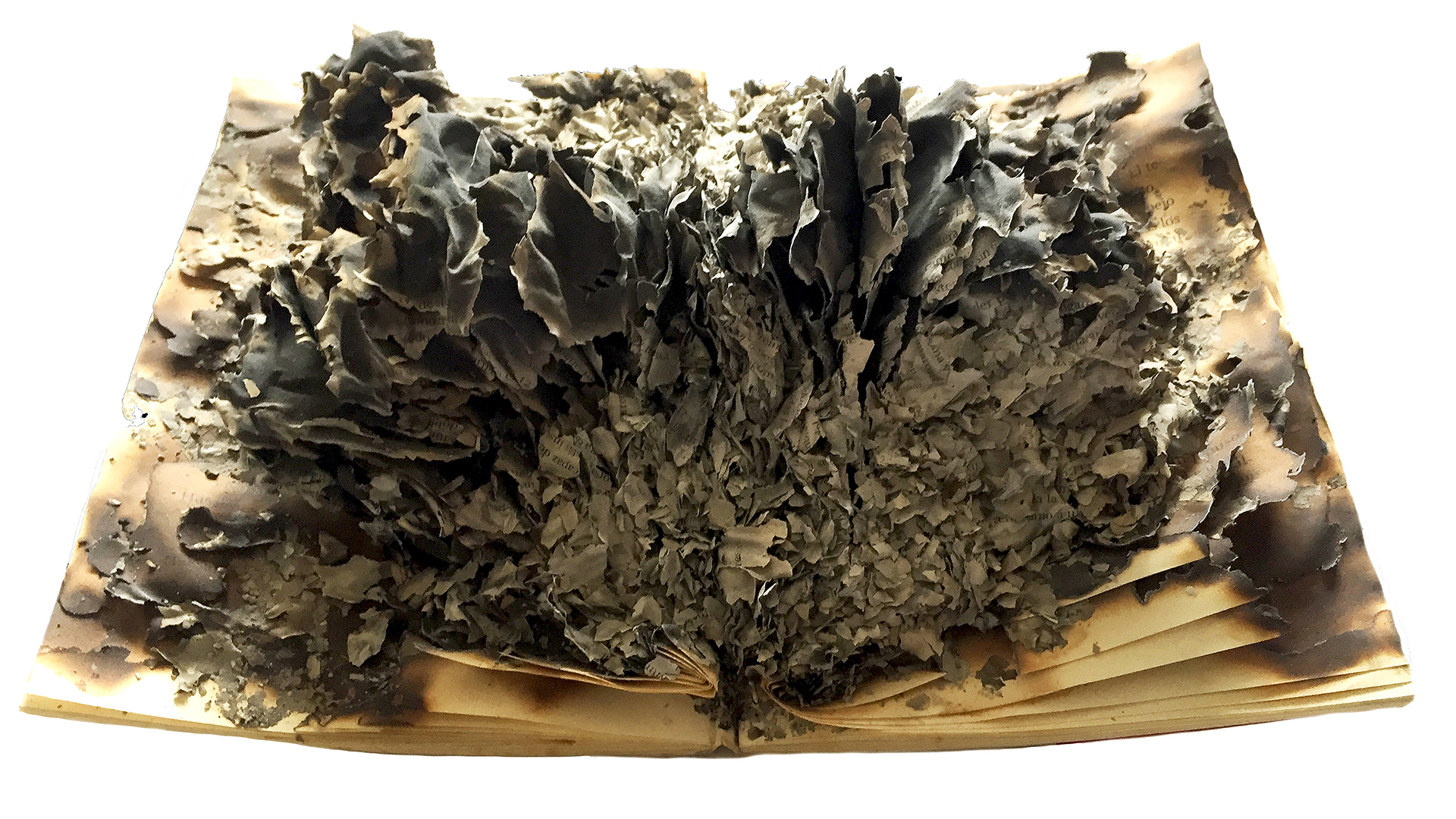
This artistic-literary project explores how knowledge disappears and changes, experimenting with images and the gradual decay of language and words, through fiction, in our collective memory. The focus is placed on creative processes and a counter-discourse that highlights the human dimension of the individual. In the project, a thousand ideas make up a sentence and, finally, a book.
The exhibition, which includes visual and textual elements, sounds and smells, consists of two broad sections. The first is “Parténope” (“Parthenope”), named after the Greek heroine and based on a previous book of the same title (Turpin Editores, 2022). The book proposed a new line of research that Dalmau&Górriz now take one step further, from the perspective of process art: we find objects, cut hair or the intangible smell of the ebb and flow of time. The cover image was a reference to one of the many aspects investigated, showing the sores on the saint’s hands.
Over time, ostraca, papyri or manuscripts disappear. The challenge addressed in the second part of the exhibition, “Libros incendiados: relatos ignorados” (“Books on fire: ignored stories”), is both different and similar. Five books that were saved from the flames conceal their content, and fragments of text are combined to create stories. Random, disjointed and thought-provoking, these stories must then be deciphered in a reading room.
The exhibition and the new book shed light on the process that takes us from the fragment to the story. Are the transcriptions of these lost stories faithful to the original texts? Where does the author end and the “transcriber-artist” begin? Are they one and the same?
Poetics on fire: a fire sparked by their content, by what they make us feel, by the fires in our everyday life, and ultimately by our own catharsis. Fiction is shaped by the collective imaginaries, interpretations and experiences found in the world we live in. Throughout history, book burnings have been frequent – the aim was to erase the ideas of past generations, without which human progress would have been impossible. All because of the fear of books.
The essays contained in the catalogue-book also look at these aspects from different angles. Right from the start, the publication is an adventure, an ironic and critical challenge for the reader.
This exhibition has been staged in collaboration with the University of Alicante Museum (MUA), with financial support from the research project “Los papiros de la ‘Vida de Alejandro’: edición y estudio literario del texto en el contexto de la narrativa de ficción en griego antiguo” (“The papyri of the ‘Life of Alexander’: edition and literary study of the text in the context of fiction narrative in Ancient Greek”, PAVIDAL), funded by the Spanish Ministry of Science and Innovation.
Sounds and smells created respectively by Jaime Munárriz and Carlos Ibáñez.
Curators: María Paz López and Aramis López